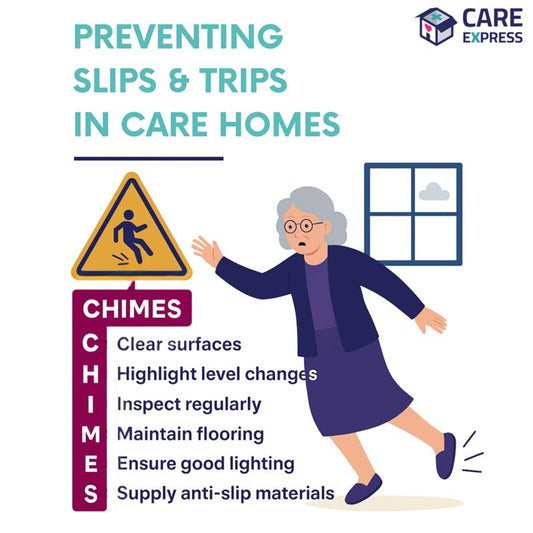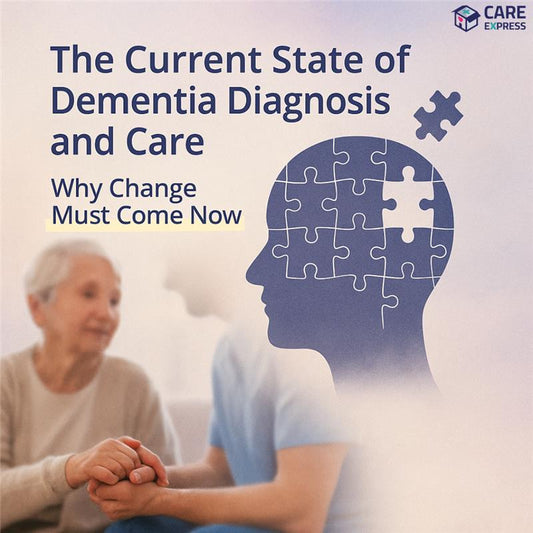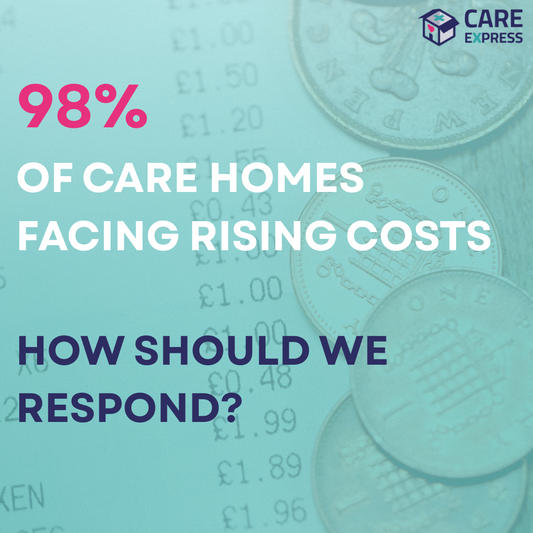The Future of Care: Embracing AI in Our Care Homes
Technology and AI are no longer just buzzwords—they’re actively reshaping how industries operate, and adult social care is entering that transformation. At Care Express, we believe staying informed about these changes is crucial, not only to understand the impact on care homes, but also to explore how suppliers like us can help you navigate this rapid shift. By keeping our finger on the pulse of innovation, we can ensure we’re not just reacting to change, but helping to lead it.
We’ve already embraced technology within our own operations. Our warehouse is powered by robotic systems that pick and pack orders with accuracy, while our internal processes are increasingly automated to reduce errors and speed up fulfilment. These investments allow us to deliver faster, more reliably, and with less strain on our team—benefits that mirror the very same goals driving the adoption of AI in care homes. When we talk about innovation, it’s from the perspective of a business that’s living it every day.
It’s from this standpoint that we’re exploring a pioneering AI-powered smart care home initiative in the UK, developed through a collaboration between Lee Mount Healthcare and Aston University. The new system is designed to use artificial intelligence to improve care quality, streamline operations, and reduce pressure on staff. For a sector facing chronic staffing shortages, rising costs, and increasingly complex needs, this innovation could not come at a more critical time.
Why AI Has a Place in Care Homes
1. Proactive Rather Than Reactive Care
AI can monitor subtle trends in health data—sleep patterns, mobility, appetite—and flag concerns before they escalate. This enables carers to act early, reducing emergency interventions and hospital admissions.
2. Reducing Administrative Burden
Staff spend too much time on paperwork. AI-driven tools can automate record-keeping, compliance checks, and scheduling—freeing up time to focus on residents, not reports.
3. Personalised, Adaptive Support
AI allows for data-informed, tailored care plans that adapt to each resident's evolving needs. Over time, these systems learn what works best for individuals, offering truly personalised support.
4. Improving Safety and Monitoring
From fall detection to medication reminders, AI systems offer a second set of eyes—24/7. This doesn’t replace human oversight but enhances it, improving safety and confidence.
Making the Transition: Human-First, Technology-Supported
The move toward AI in care must be thoughtful and inclusive. Here’s how the sector can make a successful transition:
-
Build Digital Foundations
Before adopting AI, homes need secure, reliable digital systems for storing and sharing data. Start by digitising care records and building IT infrastructure. -
Empower the Workforce
AI isn’t about replacement—it’s about support. Training and reassurance are key. Carers should be part of the journey, not sidelined by it. -
Prioritise Ethics and Consent
AI must work with, not against, resident autonomy. Transparent communication with families and clear consent protocols must be at the heart of implementation. -
Start Small, Learn Fast
Pilot schemes—like the Lee Mount Healthcare initiative—are ideal. They allow homes to test what works, measure outcomes, and scale up carefully.
A Future That’s Smarter, Safer, and More Personal
Integrating AI into care is not about technology for technology’s sake. It’s about enhancing human connection, supporting overstretched staff, and ensuring residents receive the safe, tailored care they deserve.
The Care Home Professional article shows that this future is not far off—it’s already being built. Now the challenge is to ensure the rest of the sector can follow, thoughtfully and ethically.
Reference:
“First AI-powered smart care home system to improve quality of residential care,” Care Home Professional, July 2025.








